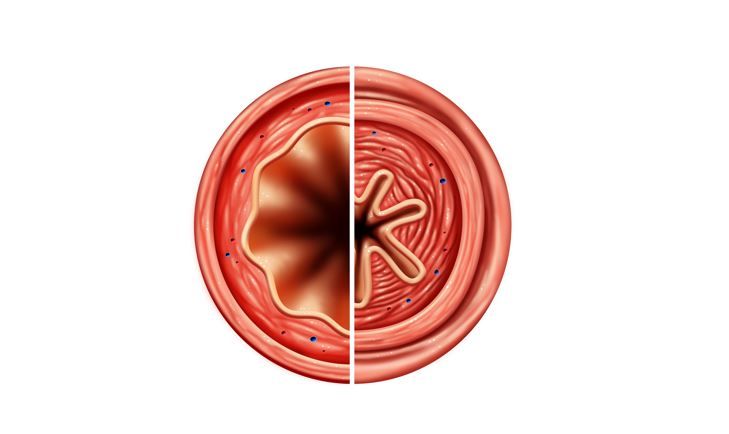- Clinical Technology
- Adult Immunization
- Hepatology
- Pediatric Immunization
- Screening
- Psychiatry
- Allergy
- Women's Health
- Cardiology
- Pediatrics
- Dermatology
- Endocrinology
- Pain Management
- Gastroenterology
- Infectious Disease
- Obesity Medicine
- Rheumatology
- Nephrology
- Neurology
- Pulmonology
Tezepelumab Reduced Number of Symptomatic Days in Adults and Children with Severe, Uncontrolled Asthma

Adults and adolescents with severe, uncontrolled asthma who received tezepelumab experienced a reduction in the number of asthma symptomatic days compared to those who received placebo, according to a new analysis of the phase 3 NAVIGATOR study.
Findings will be presented at the 2022 annual meeting of the American Academy of Allergy, Asthma & Immunology (AAAAI), February 25-28, 2022.
The US Food and Drug Administration approved tezepelumab in late December 2021 and it is being marketed at Tezspire. The indication for the injectable monoclonal antibody is as an add-on maintenance treatment for severe asthma symptoms when used with a patient’s current asthma medication. Tezepelumab is the first treatment for severe asthma without biomarker or phenotype restrictions.
NAVIGATOR, a multicenter randomized placebo-controlled phase 3 study, investigated the safety and efficacy of tezepelumab in patients with severe, uncontrolled asthma. Investigators randomized patients aged 12-80 years with severe, uncontrolled asthma 1:1 to receive tezepelumab 210 mg or placebo subcutaneously every 4 weeks for 52 weeks. Out of 1059 total participants, 528 received tezepelumab and 531 received placebo.
Participants recorded severity scores from 0 (none) to 4 (very severe) for 5 morning and 5 evening asthma symptoms using the Asthma Symptom Diary (ASD). Daily ASD scores comprised the mean of the 10 items, according to the study abstract.
For the current prespecified exploratory analysis, researchers assessed the change from baseline to week 52 in the percentage of asthma symptomatic days—defined for the purpose of the study as a mean ASD score of ≥1—each week.
Over 52 weeks, the median number of asthma symptomatic days per patient was 42.0 with tezepelumab and 61.0 with placebo.
The mean change from baseline in the percentage of asthma symptomatic days per week with tezepelumab and placebo, respectively, was -17.9% and -9.7 at week 2 (difference, -8.2% [95% CI: -12.4 to -4.3]); -38.3% and -31.1% at week 26 (difference, -7.2% [95% CI: -12.4 to -2.1]); and -40.7% and -32.8% at week 52 (difference, -7.9% [95% CI: -13.4 to -2.5]).
“Tezepelumab treatment resulted in an early and sustained reduction in the weekly percentage of asthma symptomatic days versus placebo in patients with severe, uncontrolled asthma,” concluded authors in the study abstract.
Reference: Carr W, Jain N, Ambrose C, et al. Tezepelumab treatment reduced asthma symptomatic days in adults and adolescents with severe, uncontrolled asthma in the phase 3 NAVIGATOR study. Journal of Allergy and Clinical Immunology. Published online ahead of print February 1, 2022. DOI: https://doi.org/10.1016/j.jaci.2021.12.090.
Kymera's Oral STAT6 Degrader KT-621 Shows Biologic-Like Activity in Early Atopic Dermatitis Trial
December 8th 2025KT-621 achieved deep STAT6 degradation and strong 4-week EASI and itch reductions, offering a potential new oral option for moderate–severe AD and other Th2 inflammation-driven disease.
